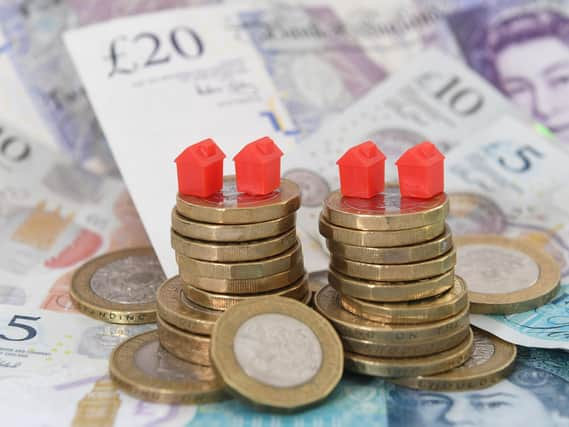How Capital Gains Tax does not need to be confusing - Gareth Shaw


In 2006 we bought our home for £297,000. In 2008, we moved with my work to Bahrain and let the house out. We returned to the UK in 2011 to rented accommodation. After two years, I then spent another year working in Saudi Arabia and then in 2014 returned again to rented accommodation. Due to my place of work being a long way from our home we have had to continue to let our property and rent ourselves.
We recently put our house up for sale and have just received an offer for £596,000. How much will I have to pay CGT on it?
Darren De Mattia, via email
Gareth says…
Advertisement
Hide AdAdvertisement
Hide AdLet’s run through the principles of capital gains tax on property. Firstly, the rate you pay on your profits is higher than what you would pay for other assets, and varies depending on the income tax rate you pay. For basic-rate taxpayers, you’ll pay 18 per cent on your profits. For higher-rate and additional-rate taxpayers, you’ll pay 28 per cent.
Secondly, do you have to pay tax on all of your profits? The good news is no. Capital gains tax is calculated on your net profits, and you can deduct a whole host of expenses from the total profit you make. We’ll come to that when we crunch the numbers on your scenario.
Thirdly, you and your wife get a capital gains tax-free allowance. In the 2020-21 tax year, it is £12,300 each, and £24,600 combined. You’ll only pay capital gains tax on your net profits above this amount.
Finally, you won’t pay tax on the period in which you lived in the property, as this is covered by ‘private residence relief’. You’ll also get an additional nine months of this relief, even after you started letting it out.
Advertisement
Hide AdAdvertisement
Hide AdHowever, I have some bad news – you’ve missed out on some further capital gains tax relief due to a tightening of the rules in April this year. As you had let the property out, you used to be able to claim ‘lettings relief’ up to £40,000, but you now only qualify for that if you live with your tenant. And the additional period of private residence relief has been halved this year – you used to get 18 months.
But let’s run through what your bill could look like. I’ll be making a few assumptions here, so I would strongly suggest taking professional tax advice when it comes to calculating your actual bill. You bought your property in 2006, and are selling in 2020, making a gross profit of £299,000 over a 14-year period. For the purposes of calculating your bill, it’s easier to think of it in months. You have therefore made that profit over a 168-month period.
However, the period in which tax is calculated is actually lower than this because you are covered by private residence relief for the two years, or 24 months, in which you live in the property, plus another nine months, totalling 33 months. Tax is calculated on the portion of profit in which your home was not your main residence – 135 months, or 80.3 per cent of your gross profit. This gives us a figure of £240,100.
You can deduct buying and selling costs from your gross profit, which include conveyancing/solicitor’s fees, estate agency fees and stamp duty. In 2006, stamp duty on a property worth between £250,000 and £500,000 was 3 per cent, meaning that you would have paid £8,910.
Advertisement
Hide AdAdvertisement
Hide AdLet’s assume you had £1,000 worth of solicitor’s fees to pay when you bought and the same again when you sell, bringing your expenditure to £10,910. Then let’s assume you’re paying 1 per cent in estate agency fees, which will result in £5,960 in fees. This brings your total expenses to £16,870.
This puts your net profit on the property at £223,230.
Finally, you and your wife can deduct your tax-free allowances from this amount – £24,600, leaving you with a taxable gain of £198,630. Even if you are both basic-rate taxpayers, the amount of profit that you are each making (£99,315) will push you into the higher-rate tax bracket, meaning that you will pay 28 per cent on your taxable gain. This would result in a £55,616 tax bill.
It’s worth noting that you have 30 days after the completion of the sale to pay your bill. You’ll do this by submitting a ‘residential property return’ and making a payment on account. So it would make sense to ensure you know exactly what you’ll pay in advance.